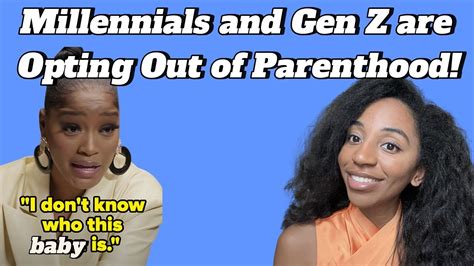
A viral TikTok video featuring an Atlanta surgeon lamenting her boyfriend’s disinterest in working has ignited a widespread debate about work ethic, financial independence, and evolving relationship dynamics. The surgeon, Dr. Sherry, expressed frustration over her boyfriend’s preference for leisure activities over seeking employment, raising questions about whether this reflects a larger trend of individuals choosing not to participate in the traditional workforce.
Dr. Sherry, in her TikTok video, shared her perspective as a high-achieving professional who values hard work and financial contribution. She voiced her concerns about the imbalance in her relationship, where she bears the primary financial responsibility while her boyfriend dedicates his time to hobbies and relaxation. This situation has sparked considerable discussion online, with many users weighing in on the complexities of modern relationships, the definition of success, and the changing attitudes toward work, especially in the post-pandemic era.
“I work so hard, and I just wish he had the same drive,” Dr. Sherry stated in her video, capturing the essence of her frustration. Her comments resonated with many viewers who shared similar experiences or perspectives on the matter.
The dialogue surrounding Dr. Sherry’s situation extends beyond just one relationship; it touches upon the broader societal shifts in how work is perceived and valued. The rise of the FIRE (Financial Independence, Retire Early) movement, the increasing popularity of side hustles and entrepreneurship, and the reevaluation of work-life balance following the COVID-19 pandemic all contribute to this evolving landscape. Some argue that prioritizing personal fulfillment and mental well-being over traditional career paths is a valid choice, while others maintain that contributing to society through employment is a fundamental responsibility.
The debate also encompasses considerations of gender roles, financial expectations, and the dynamics of power within relationships. Traditionally, men have been expected to be the primary breadwinners, but as women increasingly achieve professional success, these expectations are being challenged. Dr. Sherry’s case highlights the complexities that arise when these traditional roles are reversed or when partners have differing views on work and financial contribution.
The issue of financial independence versus dependence is central to the discussion. While some argue that individuals have the right to choose their lifestyle, others emphasize the importance of contributing to one’s own financial well-being and avoiding reliance on others. This debate is further complicated by factors such as individual circumstances, cultural norms, and personal values.
The Surgeon’s Perspective
Dr. Sherry’s initial TikTok video, which has garnered millions of views, painted a picture of a successful and driven professional who feels burdened by her partner’s lack of ambition. She described working long hours as a surgeon while her boyfriend spends his time pursuing hobbies and relaxing. This disparity in work ethic, according to Dr. Sherry, has created an imbalance in their relationship and led to feelings of resentment.
“It’s not about the money,” Dr. Sherry clarified in a follow-up video. “It’s about the principle. I want someone who is driven and motivated, not someone who is content with doing nothing.”
Dr. Sherry’s comments have sparked a wide range of reactions, with some viewers expressing support for her position and others criticizing her for being materialistic or judgmental. Many have shared their own experiences of dealing with similar issues in their relationships.
The Broader Context: A Shift in Work Ethic?
Dr. Sherry’s situation has prompted a broader discussion about whether there is a growing trend of individuals choosing not to participate in the traditional workforce. Several factors may be contributing to this phenomenon.
- The Rise of the FIRE Movement: The FIRE movement advocates for extreme saving and investment to achieve financial independence and retire early. This philosophy encourages individuals to prioritize financial freedom over traditional career paths.
- The Gig Economy: The rise of the gig economy has created new opportunities for individuals to earn income on a flexible basis. Many people are choosing to pursue freelance work or side hustles instead of traditional employment.
- Re-evaluating Work-Life Balance: The COVID-19 pandemic has led many people to re-evaluate their priorities and place greater emphasis on work-life balance. Some are choosing to work less or pursue more fulfilling careers, even if it means earning less money.
- Mental Health Concerns: Increased awareness of mental health issues has led some individuals to step away from the workforce to prioritize their well-being. The pressures of modern work can be overwhelming, and some people are choosing to take time off to focus on their mental health.
- Generational Differences: Differing perspectives on work ethic across generations play a significant role. Younger generations may prioritize experiences and personal fulfillment over traditional career advancement, leading to different attitudes toward work.
Expert Opinions
Experts in relationship dynamics and career counseling offer various perspectives on this issue.
“It’s essential for couples to have open and honest conversations about their expectations and values regarding work and finances,” says Dr. Emily Thompson, a relationship therapist. “When there is a significant difference in work ethic, it can lead to conflict and resentment. It’s important to find a compromise that works for both partners.”
Career counselor John Davis adds, “The definition of success is changing. For some people, it’s not about climbing the corporate ladder or earning a high salary. It’s about finding work that is meaningful and fulfilling, even if it doesn’t pay as much.”
Financial Implications
The financial implications of one partner not working can be significant. It can place a strain on the relationship, especially if the other partner feels burdened by the financial responsibility.
“It’s important to have a clear understanding of each other’s financial situation and expectations,” says financial advisor Sarah Miller. “Couples should discuss how they will manage their finances and who will be responsible for what expenses.”
Gender Roles and Expectations
The debate also touches upon traditional gender roles and expectations. Historically, men have been expected to be the primary breadwinners, but as women increasingly achieve professional success, these expectations are being challenged. Dr. Sherry’s case highlights the complexities that arise when these traditional roles are reversed or when partners have differing views on work and financial contribution.
Social Media’s Influence
The virality of Dr. Sherry’s TikTok video underscores the influence of social media on shaping public discourse. The platform provides a space for individuals to share their personal experiences and opinions, often sparking widespread debate and discussion.
However, it’s essential to approach social media content with a critical eye. Videos and posts are often edited or presented in a way that highlights certain aspects of a story while omitting others. It’s crucial to seek out multiple perspectives and sources of information before forming an opinion.
Conclusion
Dr. Sherry’s situation is not unique. Many couples face challenges related to differing work ethics, financial expectations, and evolving gender roles. The key to navigating these challenges is open communication, mutual respect, and a willingness to compromise. The viral video has opened a crucial dialogue about modern relationship dynamics and the changing perspectives on work and success in today’s society. Whether it truly represents a broader trend remains to be seen, but it undoubtedly reflects the evolving attitudes and priorities of individuals in the 21st century.
Frequently Asked Questions (FAQ)
1. What is the main issue discussed in the news article?
The news article primarily discusses the debate sparked by an Atlanta surgeon, Dr. Sherry, who expressed frustration over her boyfriend’s lack of interest in working. This situation has led to a broader discussion about work ethic, financial independence, changing relationship dynamics, and whether this reflects a growing trend of individuals choosing not to participate in the traditional workforce.
2. What are some of the reasons cited for the potential trend of individuals choosing not to work?
Several factors contribute to the potential trend: the rise of the FIRE (Financial Independence, Retire Early) movement, the increasing popularity of the gig economy, a re-evaluation of work-life balance following the COVID-19 pandemic, heightened awareness of mental health concerns, and differing perspectives on work ethic across generations.
3. How did Dr. Sherry express her concerns?
Dr. Sherry shared her concerns in a TikTok video that went viral, where she described her hard work as a surgeon and her boyfriend’s preference for leisure activities over seeking employment. She expressed frustration with the imbalance in their relationship and the lack of drive she perceived in her boyfriend.
4. What are some expert opinions on dealing with differing work ethics in relationships?
Relationship therapists emphasize the importance of open and honest communication about expectations and values regarding work and finances. Career counselors suggest that the definition of success is evolving, and it’s crucial to find a compromise that works for both partners. Financial advisors recommend having a clear understanding of each other’s financial situation and expectations.
5. How has social media influenced the discussion around this issue?
Social media, particularly TikTok, has played a significant role in amplifying Dr. Sherry’s story and sparking widespread debate. It has provided a platform for individuals to share their personal experiences and opinions, but it’s essential to approach social media content critically and seek out multiple perspectives before forming an opinion.
In-depth analysis and expanded context:
The incident involving Dr. Sherry and her boyfriend touches upon deeper societal currents reshaping the landscape of work, relationships, and personal values. The traditional model of a career-driven individual dedicated to climbing the corporate ladder is increasingly being challenged by alternative lifestyles and philosophies. This shift is driven by various factors, including technological advancements, economic realities, and evolving cultural norms.
The Impact of Technology and Automation:
The rise of automation and artificial intelligence has led to concerns about job displacement and the future of work. As machines become capable of performing tasks previously done by humans, some individuals may feel discouraged from pursuing traditional career paths. They might instead focus on developing skills that are less susceptible to automation, such as creativity, critical thinking, and emotional intelligence, or explore alternative forms of income generation, such as online content creation or entrepreneurship.
Economic Realities and the Gig Economy:
The increasing cost of living, coupled with stagnant wages, has made it more difficult for many individuals to achieve financial stability through traditional employment. This has led to the growth of the gig economy, where people work on a freelance or contract basis, often juggling multiple jobs to make ends meet. While the gig economy offers flexibility and autonomy, it also comes with challenges such as job insecurity, lack of benefits, and unpredictable income. Some individuals may find the gig economy more appealing than traditional employment, even if it means earning less money, as it allows them to control their own schedules and pursue their passions.
Cultural Norms and Values:
Cultural norms and values are also playing a significant role in shaping attitudes toward work. In some societies, there is a strong emphasis on achievement and material success, while in others, there is a greater emphasis on personal fulfillment and community involvement. Younger generations, in particular, are often more likely to prioritize experiences and personal well-being over traditional career advancement. They may be less willing to sacrifice their personal lives for their careers and more likely to seek out work that is meaningful and fulfilling.
The Redefinition of Success:
The traditional definition of success, which is often based on wealth, status, and power, is being challenged by a more holistic view that encompasses personal fulfillment, mental well-being, and social impact. Many individuals are questioning whether it is worth sacrificing their health and happiness to achieve material success. They are instead seeking out ways to live more balanced and fulfilling lives, even if it means earning less money.
The Role of Relationships:
Relationships also play a significant role in shaping attitudes toward work. When one partner is highly career-driven while the other is more focused on personal pursuits, it can create tension and conflict. It is important for couples to have open and honest conversations about their expectations and values regarding work and finances. They need to find a compromise that works for both partners and allows them to support each other’s goals and aspirations.
The Importance of Communication and Compromise:
Communication and compromise are essential for navigating the challenges that arise when partners have differing work ethics. It is important to understand each other’s perspectives and to be willing to make concessions. Couples should also consider seeking professional help from a therapist or counselor if they are struggling to resolve their differences.
Financial Planning and Management:
Financial planning and management are also crucial for couples who have differing views on work and finances. They need to create a budget that reflects their values and priorities and to develop a plan for managing their money effectively. They may also need to consider the financial implications of one partner not working and to adjust their lifestyle accordingly.
Challenging Gender Stereotypes:
The situation involving Dr. Sherry and her boyfriend also raises questions about gender stereotypes and expectations. Traditionally, men have been expected to be the primary breadwinners, while women have been expected to focus on raising children and managing the household. However, these roles are changing as women increasingly achieve professional success and men become more involved in childcare and domestic responsibilities. It is important to challenge these stereotypes and to allow individuals to pursue their own goals and aspirations, regardless of their gender.
The Broader Societal Implications:
The debate surrounding Dr. Sherry’s situation has broader societal implications. It raises questions about the future of work, the role of government in supporting individuals who are not participating in the traditional workforce, and the need for a more equitable distribution of wealth. As society evolves, it is important to have open and honest conversations about these issues and to develop policies that support the well-being of all citizens.
Moving Forward:
Dr. Sherry’s story has sparked a valuable conversation about work ethic, financial independence, and relationship dynamics. While there is no easy answer to the questions raised, it is clear that traditional models are being challenged and that individuals are seeking out new ways to live more fulfilling lives. Open communication, mutual respect, and a willingness to compromise are essential for navigating these challenges and building strong and healthy relationships. The evolving definition of success requires a re-evaluation of societal norms and expectations to accommodate diverse aspirations and priorities.









